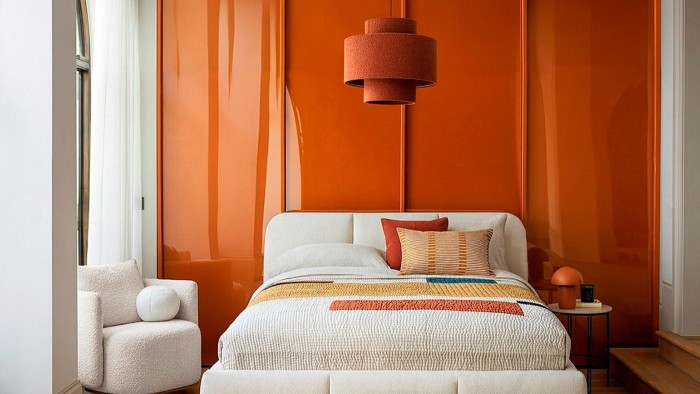Unlock the Editor’s Digest for free
Roula Khalaf, Editor of the FT, selects her favourite stories in this weekly newsletter.
Nostalgic decor was 2024’s hit with British shoppers, according to the latest research from John Lewis.
Mid-century modern sofas, tasselled curtain tiebacks, and salt-and-pepper shakers resembling clam shells were all items snapped up by customers of the employee-owned retailer over the past year, according to its annual report on shopping trends.
“Customers have embraced comfort, luxury and decoration over the past year,” said the department store chain. It added that the steadily rising consumer interest in retro decor was given “an exuberant shot in the arm” by the TV adaptation of Jilly Cooper’s Rivals, released on Disney+ in October.
Maximalist interiors accounted for many of the year’s top performers at John Lewis, where sales of curtain tiebacks more than doubled and novelty cruet sets boomed tenfold from a year ago.
In the same spirit, shoppers snubbed standard-sized ice cube moulds, whose sales dropped almost 40 per cent, favouring instead large and decorative ice moulds, up 88 cent from a year ago.
A renewed interest in elevated home decor at John Lewis comes as more than a third of UK workforce is home-based, at least part of the week, according to the Office for National Statistics. But most consumers have “no need for any more WFH kit”, said the group, adding that sales of office chairs fell 24 per cent from last year.
Also performing poorly were boxed and individual Christmas cards, down 23 and 15 per cent respectively. Britons have shunned traditional festive greeting methods in exchange for WhatsApp messages, John Lewis said, after the cost of first class stamps rose to £1.65 in October.
Shopping in bricks-and-mortar stores is also making a comeback, according to the department store chain, whose latest survey found that the majority of shoppers want to “touch and feel” products, or “try [them] on”.
“The enjoyment of shopping in person and expert face-to-face advice is here to stay,” said Peter Ruis, executive director at John Lewis, which invested £26mn in updating its stores this year and plans to spend £36mn in 2025.
Household expenditure data from the ONS show UK spending is growing again this year, following declines in 2023. Sales especially grew above expectations in the third quarter of 2024, with September marking the highest sales volume since July 2022.
Yet the UK economy contracted in the third quarter, in a blow to the Labour government’s plans to deliver higher growth. Nish Kankiwala, the departing chief executive of John Lewis, joined retail business leaders this year in bemoaning the impact of the Budget, saying the retail chain faces “tens of millions” in additional costs from next year, including increasing contributions to National Insurance.
The former chair of the department store’s parent partnership, Dame Sharon White, also stepped down earlier this year, replaced by Jason Tarry.
The £12bn John Lewis Partnership — which also owns Waitrose — said in September that losses before tax had fallen to £30mn in the six months to July 27, from £59mn a year earlier, while revenues were up 2 per cent to £5.2bn, in the last set of results under White.
Additional reporting by Laura Onita in London
Read the full article here

